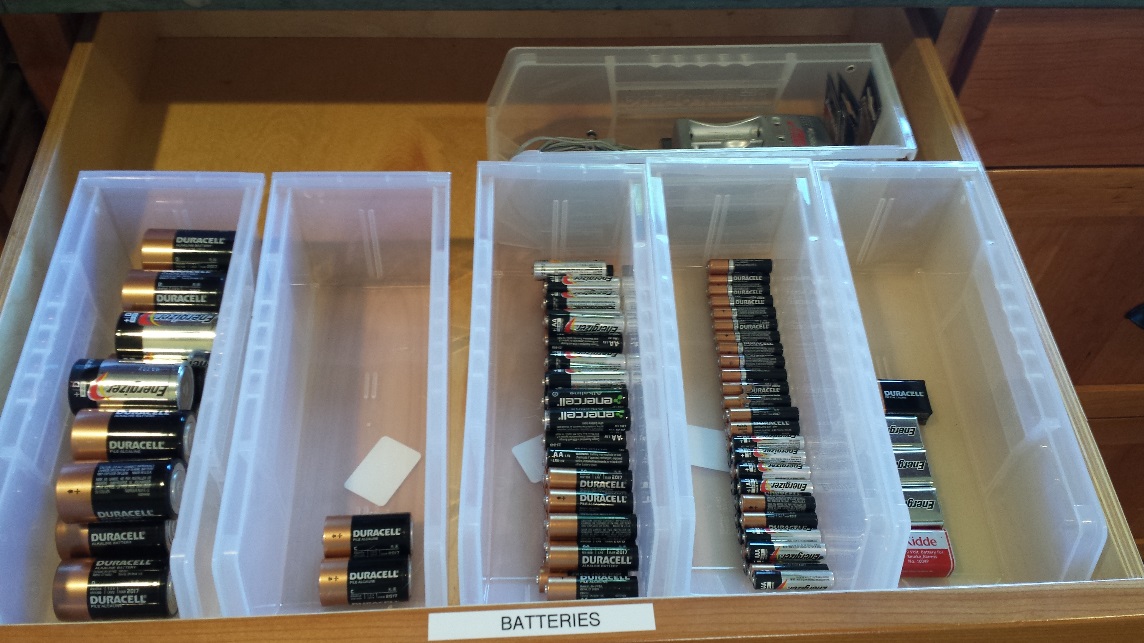
Simply Placed Organizer Laurie here, I was recently helping a client organize her utility room and came across a bag full of mixed batteries. I realized that many of us could use a refresher on how to properly store batteries. Proper storage of batteries will extend their life and keep them from becoming a safety hazard. Here are a few simple guidelines to keep in mind when storing batteries.
- Always store batteries with the positive and negative terminals away from each other. If batteries are stored with positive and negative terminals touching, they may begin to conduct electricity idly, which will discharge them. You can either store them in their original package or buy a battery storage box.
- Leave the plastic caps on your batteries’ terminals when applicable. Some batteries, such as many 9-volt batteries, come with a plastic cap fitted over the terminals. Leave these caps on during storage to prevent the batteries from conducting electricity and losing their charge.
- Avoid storing old and new batteries together. When new and old batteries are near each other, it is possible for the new ones to conduct electricity into the older ones, and discharge them. A good way to avoid this risk is to use batteries in your devices until they are fully discharged. Old batteries are hazardous waste and can be recycled. Check here for information on where to recycle batteries and other household waste in King County.
- Store your batteries in a dry, cool location. Store your batteries in a location where they will not be subjected to extremes of temperature or humidity which can damage the battery. Ideally, you should store them at around 60 degrees Fahrenheit.
In addition, batteries should be removed from infrequently used electronic items such as seasonal décor and lights. When left in an electronic device, a battery will discharge much faster than if it was left in storage. There is also the risk of corrosion which can damage the electronic itself.
By following a few simple rules, you can rest assured knowing that your batteries will be charged and ready to use when you need them. With winter on its way, it is important to have charged batteries in case of an emergency. For more information on emergency preparedness, check out our blog post on how to make an emergency kit.






